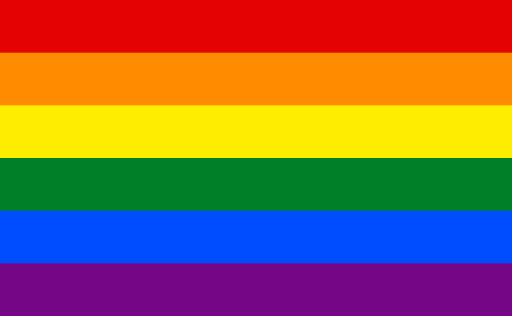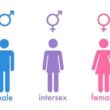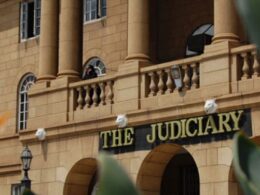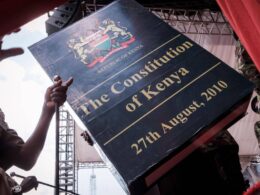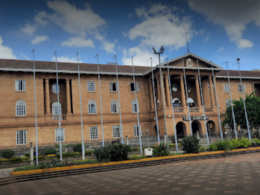Introduction
I traverse on very thin ice as I put this opinion together. It is well pasted and clear at the back of my mind that there has been pandemonium on matters touching on LGBTQ not only here in Kenya and the African Region but also the world over. Anything touching on this subject provokes different reactions, there are those who are pro and there are those who cannot entertain such a thought. The world over, men, women and non-binary individuals have had to pay the ultimate price, the lose of their lives, fighting for the basic human rights and fundamental freedoms of many others, that they may be enjoyed freely.
The majority of persons who dwell within the boundaries of the African continent remain conservative around the issues of LGBTQ+, so conservative that regressive laws were enacted criminalizing [homo]sexuality. To them, this is a grave sin worse than adultery, murder and many others, if asked, all persons who fall within the LGBTQ+ spectrum, should be executed like the ‘vermin’ they are.
Religion, traditions and culture, have been the fulcra upon which loathe of [homo]sexuality have been anchored. They have been used to persecute, discriminate and prejudice the persons who have freely stated their orientation, embracing and accepting it and being authentic, in my opinion, to themselves and the world. The Bible, the book that conveys the good news of the Lord, has been used as a weapon to castigate persons based on their sexual orientation. The story of Sodom and Gomorrah being the bomb that detonates at the mention of these issues. There have been and continues to be opposition propelled against fellow human beings in the fight for their rights. This is ‘un-African’ as the majority proclaim.
Many countries in Africa still criminalize [homo]sexuality, with crude methods of punishment being the weapon used to deter the many who fight for a cause. They have been used to silence the voices of the unwavering hearts and determined souls to ensure that all human rights regardless of the orientation are upheld, safeguarded and respected. This is the hallmark of human dignity, the corner stone in any democratic setting. Violence, imprisonment and even death have been the stones on the sling shot that is the continent and its people, aimed at the many men and women who are ‘different’ and, just like Goliath, these stones, sadly, have brought them down. This is uncalled for.
It is sad, in my opinion, that human rights have been a song carolled over the years, leaders or their representatives have met in high level meetings and penned their signatures on conventions and protocols aimed at promoting, safeguarding and upholding human rights and fundamental freedoms. The reality on the ground is that, this does not happen, they forget as soon as they down the last drop in their cocktails. If the rights of every individual are respected, I believe that as a universe we would live so much better.
Kenya is no exception to the list of countries that criminalize [homo]sexuality. Well pasted in the Penal Code are offences titled ‘unnatural offences’ how unnatural they are is left to the interpretation of the diverse humans who roam Kenyan soil and call it home. Though no one in this beautiful country has ever been convicted of these offences, it still remains among the sections of the Code. This has been used to the disadvantage of many where death, threat of life, extortions, abuse and violence have been the offspring of this outdated law. For how long? This is the question that lingers but no one dares answer it.
A brief History
In England, male ‘homosexuality’ had been illegal since the Buggery Act of 1533 (Female homosexuality was never specified). The law became a lot stricter in 1885 with the Criminal Law Amendment Act, which made all homosexual acts illegal, even those carried out in private. Perhaps the most famous prosecution was that of the writer Oscar Wilde in 1895. 1
After WWII, arrests and prosecutions for homosexuals increased. For example, Alan Turing, the cryptographer who helped to break the German Enigma code, was victimised for his homosexuality. Charged with ‘gross indecency’, he was forced to choose between prison or hormone treatment. He also lost his job. His death in June 1954 was treated as suicide.
Kenya, a British Colony at the time, in 1897 was the year when [homo]sexuality’ was outlawed. This law that was transfused to the colony from London, the same being an offence there.
In 1789 at least 126 countries had criminalized [homo]sexuality.
Back in London, the government set up a Departmental Committee under Sir John Wolfenden, to consider both homosexual offences and prostitution. Wolfenden’s influential report put forward the argument that ‘homosexual behaviour between consenting adults in private be no longer a criminal offence’. Despite the recommendations of the report, it was not until July 1967 that homosexuality finally became legal in England and Wales.
Kenyan’s former colonial master, decriminalized ‘homosexuality’ four years after Kenya’s independence, that is more than fifty years ago. Kenya, unlike England still criminalizes ‘homosexuality’. This adds to the number of Kenya’s siblings within mother Africa who remain adamant in persecution, oppression, abuse and stigmatization of same sex relations.
Identity: choice or nature?
We are all different, diverse in many ways, we are not a replica of each other and when we look in the mirror, and the reflections we see regurgitate this. Imagine living in a universe where all of us were similar, where diversity was not in existence, it would have been a lacklustre place to be in to say the least.
We are different in many ways, our cultures, traditions, dialect, cuisine, and dressing and this is the same way humans are diverse in relation to their orientation. It has been long argued that persons are not born gay, lesbian and all the other orientations that exist now but it is a choice, is it or is it nature that one is born within the LGBTQ+ sphere.
Taking it back to Biblical times, the story told of Sodom and Gomorrah does not accord as the genesis of where the men in this ‘sinful’ cities came from. Do not get me wrong here, being a Christian, this is an important aspect we need to consider. We are not accorded the prestige to be privy to information of where these men originated from, we cannot question God, as we are mere mortals. This is a question whose answer we do not have.
The argument on choice has been floated like a balloon on a windy cold day, this has been shoved down people’s throats, and accused of making the ‘wrong choice’ so to speak. There has never been scientific evidence or otherwise to indicate that the men and women who have bravely defended their orientation, made a choice to be the beings they are. The theories fronted to push the ‘choice’ agenda hold no water like a sieve can’t.
Science on its part has made efforts to indicate that orientation stems from the genes. There have been numerous research and documentation made to indicate that persons who are ‘different sexually’ are born that way. I will not dwell much here, this is a vast topic on its own.
I therefore pose a question, why would one make a choice of falling within the spectra of LGBTQ or any other orientation, in a world where they will face oppression, violence, prejudice, stigmatization, harsh penalties to include death? Why would they choose to be a state where they risk being segregated by their families and excommunicated from places of worship? Who would choose to lead a life where they would live in secret, caging their feelings and surrendering their happiness for sorrow and discontent? Where discrimination is meted without fear? In a continent like Africa, where countries strive to stiffen the punishment of ‘homosexuality’ still, the many who are in this great continent, did they still make a choice? We chose the clothes we wear, the food we eat and what we drink. The response to these questions lies with us, and if all of them are responded in the negative, then is it a ‘choice’ or people are ‘born that way?’
Constitutionality of Sections 162 (a) (c), 163 And 165 of the Penal Code; CAP 63 Laws of Kenya
Let me now examine the sections of the Penal Code, that criminalize ‘unnatural acts’ vis a vis the provisions of the Constitution, 2010. Are these provisions of this law Constitutional? This is the question I will attempt to answer.
The Penal Code in its long title states that it is an Act of Parliament to establish a code for criminal law. This Act commenced on 1st August 1930, and the years over there has been several amendments to it. At the time of its commencement, Kenya was a British colony.
Kenyans, our African brothers and sisters and the world over witnessed the promulgation of her new Constitution in 2010. This Supreme Law was as a result of a long struggle, a struggle bravely born by men and women who thirsted for a new democracy, a change in governance and rule of law. With this new grund norm came a robust Bill of Rights. Chapter Four was dedicated wholly for these rights, cultural, social, economic, civil and political rights. Human rights are the beam on which the dignity of persons is bolted. These rights are not a painting in a museum, to be admired, they are to be implemented in all democratic setting, applied to all regardless of class, gender, orientation, political, cultural and religion affiliation.
Section 162 provides for ‘Unnatural offences’ and states, any person who— (a)
has carnal knowledge of any person against the order of nature; or (c)
permits a male person to have carnal knowledge of him or her against the order of nature, is guilty of a felony and is liable to imprisonment for fourteen years:
Subsection (a) provides that any person who has carnal knowledge of any person against the ‘order of nature’ is guilty of an offence. Why make this an offence? This is the first question I pose. The law as we are aware, comes in to create order, to dispel anarchy that would rather crop from the seeds that are chaos in any democratic setting. It is safe to argue, in my opinion, that back in the day, any relationship was to be between a man and a woman, and religion,
traditions and culture backed this. The issue of same sex consensual relationships was in existence, but since it was not ‘natural’ and went ‘contra the order of nature’ was deemed sinful, ‘untraditional’ and ‘foreign’, this in my opinion was premised on ignorance and conservatism.
Since at the time there was little or no information about LGBTQ+, in my opinion, this could be the reason why the law was brought to ‘cure’ this grave wrong and sin. A person cannot have carnal knowledge of another if there was no consent. We are in the 21st century and there have been tremendous changes that have occurred to include the American Psychological Association to declare that ‘homosexuality’ is not a mental disorder. I pose a query here, given all that we know now, do we really need this law?
Subsection (c) makes it an offence where permission is granted by consenting adults to engage in same sex relations, what is being denoted to as ‘against the order of nature’. This section criminalizes, consent, volunteerism and acceptance, in my opinion. One cannot grant permission to have another do that which he or she does not accept or is uncomfortable with, they do it because both adults are in agreement. Where there is no consent, or the permission is obtained in other crude ways, then a problem lies there and that is what is cured by the proviso under this section. It provides;
Provided that, in the case of an offence under paragraph (a), the offender shall be liable to imprisonment for twenty-one years if—the offence was committed without the consent of the person who was carnally known; or the offence was committed with that person’s consent but the consent was obtained by force or by means of threats or intimidation of some kind, or by fear of bodily harm, or by means of false representations as to the nature of the act.
Should the law criminalize consent between sound mature adults to engage in same sex relations? The answer to this question is clear as day, NO. We have progressed, moved from ignorance and increased in knowledge, for those that care to learn on LGBTQ to the extent that countries decriminalized it. Why then should we as a country cling on to this ‘non- progressive’ law?
Section 163 provides for an attempt to commit an unnatural offence and states as follows;
Any person who attempts to commit any of the offences specified in section 162 is guilty of a felony and is liable to imprisonment for seven years.
How does one even prove this in a court of law? One will safely argue that it will depend on the circumstances in each case. Preparing to commit and offence is one that would require compelling evidence, it is not safe to just say that ‘it will depend on the circumstances of each case’. For instance, two men sued the Chief Magistrate of the Kwale Law Courts and the DCIO Msambweni Police Station, the Magistrate authorized for the two men to undergo among others, anal examination so that it could be proven they had been engaging in ‘unnatural acts’. This was not only inhuman, degrading it was also a violation of their human rights.2 This is a good example where the police will have no evidence whatsoever and will go on a fishing expedition for the same. The Kenya Medical Association made a statement that they will not conduct any forced anal examination even where it is to establish a crime. The victims who fall within this sphere are those who are ‘suspected’ of engaging in same sex relations. Do we need to have an offence, where no one has ever been convicted of, an offence that is used to extort money from people, one that is used to intimidate and harass members of the public? Certainly, to me, we do not need it, in my opinion.
Section 165 creates and offence titled ‘indecent practices between males’ and provides as
follows;
Any male person who, whether in public or private, commits any act of gross indecency with another male person, or procures another male person to commit any act of gross indecency with him, or attempts to procure the commission of any such act by any male person with himself or with another male person, whether in public or private, is guilty of a felony and is liable to imprisonment for five years.
What is ‘gross indecency’? This is a question that attracts numerous diverse responses but not a uniform one. The Indian Penal Code, just like the Kenyan one, under Section 337 provides for this offence, it is safe to say, in my opinion, that at the time what was done may have been ‘gross’ for whatever reasons.
Now, in the 21st century, can it be said that it is ‘gross indecency’. What makes this offence interesting is that, even when done in private the two men would be arrested and charged in a court of law. Here, this section contravenes the provision of the Constitution. Am not sure how it was done, whether police would go knocking on each person’s door to ensure that ‘gross indecency’ was not committed or how they operated. I am not sure, in my opinion that anyone who is in their right sense of mind will be ‘grossly indecent’ in public. How would the prosecution prove the offence of ‘procuring’ another male, or attempting to procure for the purpose of committing ‘gross indecent’ acts, those questions are best responded by the prosecution. This particular section, in my opinion, should be the first to be declared unconstitutional. What is done in private, by two consenting male adults, in my opinion, should not be the business of anyone, if it does not affect them.
What Articles of the Constitution are being contravened by these Sections?
Article 2 (1) provides that the Constitution is the supreme law of the Republic and binds all persons and all state organs at both levels of government. This Constitution supersedes all other Acts of Parliament, the Penal Code among them.
Article 2 (4) provides that any law, including customary law, that is inconsistent with the Constitution is void to the extent of inconsistency, and any act or omission in contravention of this Constitution is invalid. The Penal Code is inconsistent with the Constitution, 2010 in so far as Sections 162 (a), (c), 163 and 165 are concerned. The inconsistency with other Articles of the Constitution that I will address, make these sections Unconstitutional and should be done away with.
Article 10 (2) (b) on national values and principles of governance, states that the national values and principles of governance include; human dignity, equity, social justice, inclusiveness, equality, human rights, non-discrimination and protection of the marginalised. When men are arrested arbitrary by police on suspicion of engaging in same sex relations and are escorted to health facilities to for forced ‘examination’ for an offence to be established, its mortifying and degrading to say the least, doesn’t that violate those individual’s human dignity?
Where the police and other persons use this as a platform to extort from men and women, who not for their choice, they are who they are, isn’t that contra the dictates of the supreme law on human dignity? That in itself, in my honest opinion, is basis to have these sections declared unconstitutional. National values and principles of governance are not a privilege to a chosen few, but for all that walk the Kenyan soil, the men and women who are citizens of
this beautiful land. Human rights in any given democratic context must be upheld, safeguarded and respected regardless of among others orientation.
Article 19 (1) on rights and fundamental freedoms provides that the Bill of Rights is an integral part of Kenya’s democratic state and is the framework for social, economic and cultural policies.
Article 19 (2) provides that the purpose of recognising and protecting human rights and fundamental freedoms is to preserve the dignity of individuals and communities and to promote social justice and the realisation of the potential of all human beings. How can human dignity be preserved if the rights of various groups of individuals are not recognized, not protected and upheld. Human Rights are universal, inherent and sacred to all that walk this earth, there is dignity in upholding rights.
We cannot argue and state that persons who engage in same sex relations do not have rights, for instance, where one is arrested arbitrary by police, not presented before a court of law in time that is a right they have and has been contravened. Where forced ‘examinations’ are conducted without consent, that goes contra the provisions of the Constitution under Article 25 on freedom from torture and cruel, inhuman or degrading treatment or punishment. This is a fundamental right that cannot be limited. Every individual has potential in them to do diverse things beneficial to all, hence the wording of the supreme law. All human beings, does not have a caveat to it and encompasses everyone. If and when the sections of the Penal Code that criminalize same sex relations are expunged having been declared unconstitutional, then we will achieve the protection of human rights so as to preserve human dignity.
Article 24 (1) on limitation of rights and fundamental freedoms provides that a right or fundamental freedom in the Bill of Rights shall not be limited expect by law, and then only to the extent that the limitation is reasonable and justifiable in an open and democratic society based on human dignity, equality and freedom, taking into account all relevant factors including:- the nature of the right or fundamental freedom; the importance of the purpose of the limitation; the nature and extent of the limitation; the need to ensure that the enjoyment of rights and fundamental freedoms by any individual does not prejudice the rights and fundamental freedoms of others and the relation between the limitation and its purpose and whether there are less restrictive means to achieve the purpose.
Should the opinion of who’d seem to form the ‘majority’ here be the wind turning the turbines generating the limiting of human rights of individuals based on their orientation? Fear of the unknown, ignorance and conservatism continue being the foundation of championing for the violation of these individuals’ rights. What prejudice would the public suffer if same sex relations in private are done away with? What wrong would be occasioned if this was done? Will they premise it on morality, yet there are many things that are done more immoral than these. Article 1 (1) affirms that all sovereign power belongs to people of Kenya and shall be exercised only in accordance with the Constitution. The people have a voice that I agree, however, should the voice they have mute the voices of the men and women who desire to enjoy their lives as who they are, I certainly don’t think so.
There are other rights within the Bill of Rights that are denied to people based on their orientation, for instance, right to health, freedom of movement and association. The question is, given we are a democratic society, is the curtailing of these justifiable? Are considerations taken pegged on human dignity and what may occur of same if not respected? This is occasioned by existence of such provisions in the Penal Code criminalising same sex relations.
Article 27 provides for equality and freedom form discrimination, subsection (1) states that every person is equal before the law and has the right to equal benefit of the law.
Subsection 4 and 5 provides that the State as well as person (s) shall not discriminate among other grounds birth. It has never been proven that people of the LGBTQ+ community make a choice to be who they are, there is no evidence to back this ‘allegation’. Science however, has made strides to show that people are born within this community, that genes play are role in it. The argument I put forth therefor is, all the human beings that are of a different orientation, being born as who they are, then doesn’t the state and people go contra the Constitution by discriminating based on birth? Examining it from this angle then, these sections of the Penal Code need to be done away with as they are unconstitutional. The drafters of the Constitution were not wrong in inserting this sub-section in this supreme law, they may not have foreseen the importance at the time, but it certainly it is important.
Article 28 on human dignity and states that every person has inherent dignity and the right to have that dignity respected and protected. At what particular point do we then say that the dignity of LGBTQ+ persons is trodden upon, ignored and not respected? What justification can be birthed from this violation of rights as encapsulated in the Constitution that Kenyans so cheered for on its promulgation? There is none whatsoever that comes to my mind. When men and women are arrested and subjected to humiliating factors, disregarding their dignity, is that Constitutional, certainly not. Sections 162 (a), (c), 163 and 165 of the Penal Code are the factories that produce the products that are violation of human dignity. Where two consenting adults agree on doing that which is termed as ‘unnatural’ that should not be the business of the state nor of any other person for that matter. How then do cure with this? Theses sections need to declared unconstitutional and be done away with.
Article 29 on freedom and security of the person, it is provided that no person should either be subjected to any form of violence whether from public or private source or torture in any manner whether physical or psychological. Despite this clear provision of the Constitution, queer minorities have been and continue to be subjected to violence, both verbal and emotional to include from family members, granted that who they are, is largely not accepted within society. As result of this, they will suffer from mental anguish that translates to psychological torture, for this reason, as an example, many queer and gender minorities are forced to hide their true selves in a quest to avoid violence and psychological torture. The provisions of the penal code have set the foundation for the continued violation of human rights and fundamental freedoms of queer and gender minorities within the country, thus being a violation of the Constitution.
Article 31 on privacy and provides that every person has the right to privacy, which includes the right not have; their person, home or property searched among others. Section 165 of the Penal Code is in contravention of the Constitution, as it provides for breach of privacy. Where two people in the confine of their safe spaces, that is their home, be arrested and charged with ‘gross indecency’? Most of the things if not all of them, done in private will not please the mortals that are the members of the public and this is a fact. Why then should a law be in existence where it is in clear contravention of the supreme law? The response to this query is simple, it should be done away with. We cannot bury our heads in the sand and wish things away. Everyone’s privacy regardless of who they are needs to be respected, this is a right that is guaranteed and as such should be safeguarded and upheld.
Article 32 on freedom of conscience, religion, belief and opinion and sub article (1) provides that every person has the right to freedom of conscience, religion, thought, belief and
opinion. Article 8 provides that there shall be no state religion. Not every Kenyan is religious and that’s a fact. Religion has been used to propel the, persecution, loathe and prejudice of individuals who are also God’s children. It is a fact that diverse religious leaders and ‘Christians’ will come out strongly and oppose the proposed changes to the law and various versus of the Bible will be quoted. We cannot use this to the disadvantage of others, we need to respect that not all are religious like we are. This is an emotive topic and I wish not to proceed further than this, however, this Article should be respected and used to the disadvantage of others.
Article 43 provides for economic and social rights sub-article (1) (a) states that every person has the right to the highest attainable standard of health, which includes the right to health care services, including reproductive health care. It is not a secret that people who are not heterosexual have faced their fair share of challenges in accessing health care especially where it is discovered they fall within the LGBTQ+ community. Some have been chased out of health care facilities and denied medical attention. Every person is not qualified and literally includes every human being. The reason why some of the doctors will deny them treatment is of the sections of the Penal Code that criminalise same sex consensual relations. How then can we say that these sections of the law are not unconstitutional?
We have numerous regional and international instruments that are geared towards the safeguard, upholding and respect of human rights and fundamental freedoms from which human dignity streams. These instruments are alive, so to speak, to the fact that we are diverse and as such there is a need to ensure that the respect of human rights and fundamental freedoms are actualized and made a reality. They may not expressly provide for queer and gender minorities, rather human beings generally and queer people are human beings first, given that their humanness precedes their queerness, as such, the provided human rights and fundamental freedoms apply to them firmly on that basis.
Reality or Perception?
It is a reality that many men and women have suffered for who they are, whose rights have been violated and their dignity stripped from them. It is a reality that all of us are different and diverse to include orientation. It is a reality that men and women who fall within the LGBTQ+ community engage in same sex relations in the comforts of their homes, hotels etc. It is a fact that these sections of the Penal Code are in contravention with the dictates of the Constitution and thus need to be amended and the said sections done away with. It is a reality that people do not chose their orientation but are born as who they are. It is not in denial that laws had been put in place to sanction this ‘evil’ and this in my opinion, was pegged on ignorance, fear of the unknown and conservatism.
It is a fact that there are other countries in Africa namely Burkina Faso, Mali, Equatorial Guinea, Djibouti, Botswana, Central African Republic, Gabon, Angola and South Africa that decriminalized the so called ‘unnatural acts’, why then can Kenya not join this list? These too are African countries whose people have cultures, traditions, who are, if not all religious, but this did not bar them from having a change of heart that saw a change in law. What informed of these changes? This is a question Kenya and the Kenyans that oppose it should ask themselves and the responses they can get from these progressing countries. It is a reality that violence, abuse and mistreatment of our brothers and sisters will not end by a day, a week or a month, it will be progressive, but the change in this law shall be the starting point for a new dawn.
It is a perception that if the law is changed then people will go on conversion spree to convert all men and women to be like them. It is a perception that this will open the door way for the championing of same sex marriage in Kenya and certainly that is not the case. It is fear of the unknown, ignorance and conservatism that will see a people instigate for the breaching of human rights for others.
We can borrow from the Wolfenden Committee recommendations and follow in the footsteps of our former colonial master and do away with these sections of the law that in my opinion do not serve any purpose now. We are diverse as we come and we have to agree that we cannot be all similar, we should keep open minds and be accommodative. We need to learn more and increase knowledge in relation to orientations that are not heterosexual as to dispel fears of the unknown, from this standing then will be arguing from an informed point and not an ignorant one.
In conclusion we do not need a section of a law that serves no purpose, in that, no one has been convicted of any offence under these sections. It has been used to the disadvantage of others. These sections are unconstitutional and retrogressive. We are all human beings, and all entitled to the enjoyment of human rights and fundamental freedoms and the dignity that flows from them. We all derive joy in different things and that’s the important thing to always have pasted at the back of our minds. Where consenting adults are in agreement to engage in same sex relations that becomes no one’s business other than their own. Some of these offences are ancient, having come into play over 100 years, for whatever reason, they may have had laws that served the purpose at the time, however many years later and the changes that have occurred, do we still need some of these laws? Certainly not.
We need to have a change in law and that change is long overdue.
The late Nelson Mandela said “to deny people their human rights is to challenge their very
Humanity.”
Wallace M Nderu is an Advocate of the High Court of Kenya, Human Rights Lawyer and Queer Feminist.





